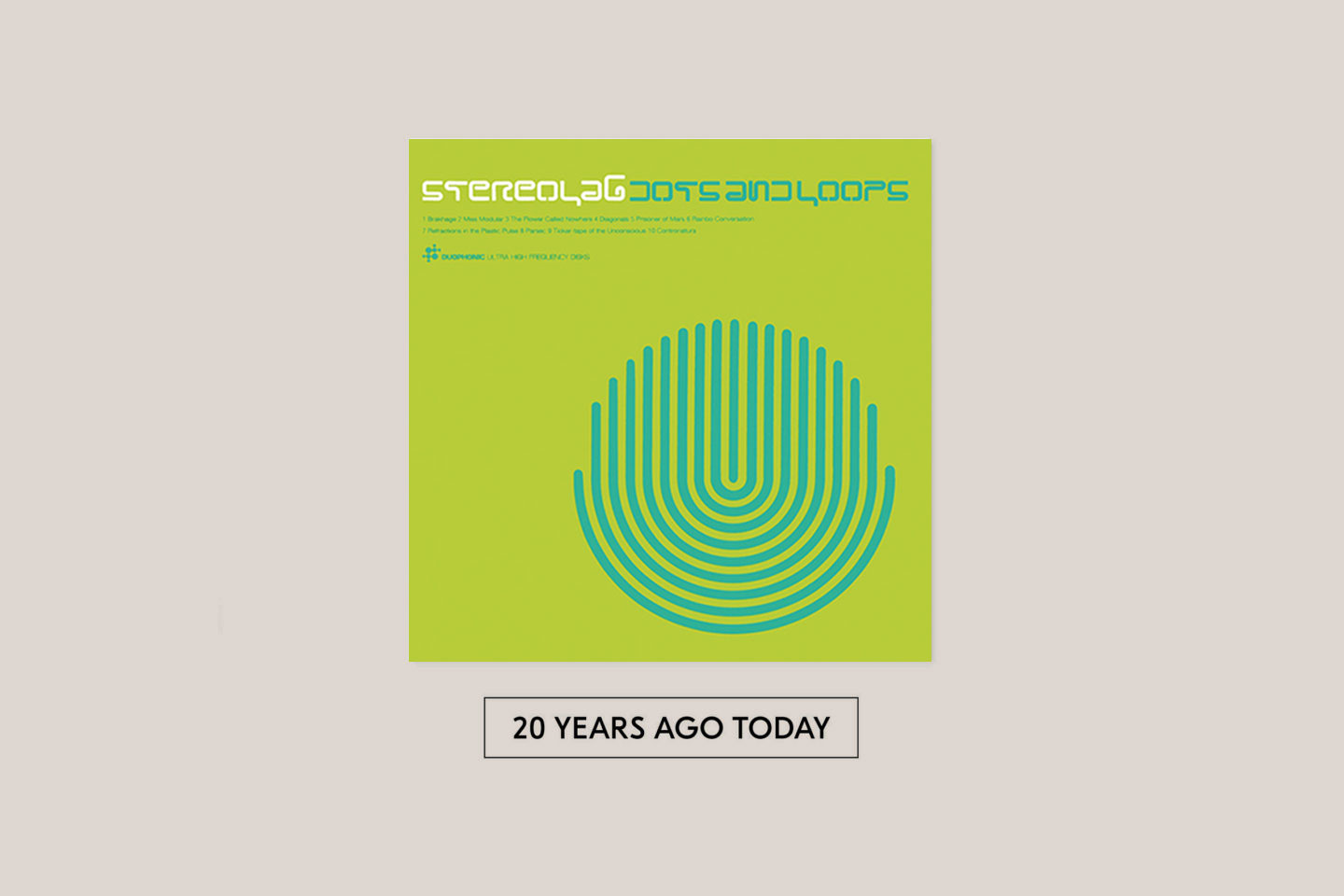For all the adamant futurist postures struck at the time, though, it’s now more obvious that ‘Dots And Loops’ arrived at a turning point both for its writers and for British music in general, and by dint of that coincidental timing the album stands, inadvertently, as a quasi avatar for both shifts. For the Stereolab ultras, the album now looks like the first sign of weakness, the beginning of a mutation into bleep-bloop space-age aestheticism and away from the motorik urgency of their purest early days. Sure, all bands change – even those that insist they don’t – but Stereolab’s jettisoning of their trademark teutonic drive on ‘Dots And Loops’ now gives their whole discography a rather dramatic sense of “pre” and “post”. They weren’t the first band to make this sort of shift, but nonetheless it marks out ‘Dots And Loops’ as an album around which Stereolab’s others revolve.
Likewise, while the album wasn’t the first to make a concession towards pop aesthetics while emphasising cut-and-paste production and obscure sampling (‘Odelay’, for example, had gone double-platinum by this stage, while ‘Endtroducing…’ was still being lauded a year after its release), ‘Dots And Loops’’ timing was ideal: as Britpop dwindled, the album offered teenagers who had cut their teeth on Blur v Oasis, now a couple of years older and more curious, an accessible British-based shortcut into a world of collage, crate-digging and electronica beyond the walls of Beatles/Stones rock-music hegemony, not to mention the already sprawling and provocative back catalogue of Stereolab themselves.
But while these almost accidental qualities arm ‘Dots And Loop’s with a sort of significance beyond its own running time, the album wouldn’t continue to bear such scrutiny after two decades if it wasn’t also an intrinsically beguiling single piece of pop: as it is, though, few records in 1997 created as seductive and coherent a soundworld as ‘Dots And Loops’, seamlessly fluid over 70 minutes without ever becoming stultifying, which is why it’s such an enjoyable adventure still.
Indeed, twenty years on, it’s Dots And Loops’ possession of that most “Stereolab” of characteristics – of being unassumingly symbolic while, simultaneously, rather elegant and fundamentally urbane – that makes it perhaps the peak Stereolab experience. Other albums of theirs may be more loved or more played, but despite its apparently stylistic departures, despite its sonic softening, ‘Dots And Loops’ is the one where Stereolab’s signature is most indelible. Impressive for an album – like many of 1997’s best – that doesn’t sound like it should.
Also out this week in 1997:
Bjork – Homogenic (One Little Indian), chart peak # 4
Finley Quaye – Maverick A Strike (Epic), chart peak #3
Dubstar – Goodbye (Food), chart peak #18
To read all the other entries in Sam’s Twenty Years Ago Today blog, click here.
